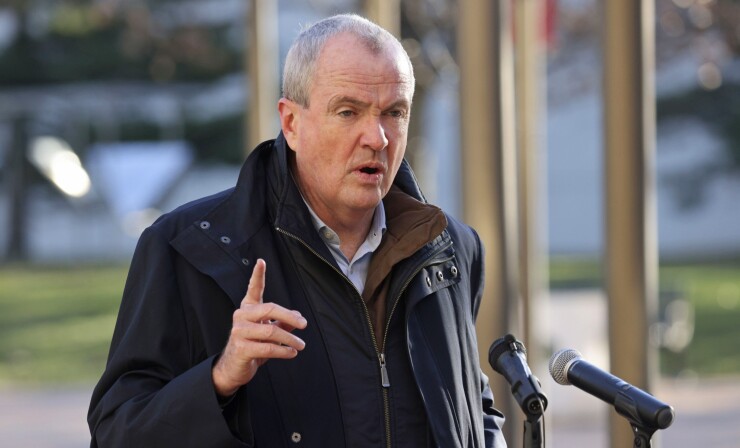The $46.4 billion fiscal 2022 budget package New Jersey lawmakers and Gov. Phil Murphy approved includes a measure to pay down debt.
The
The fiscal year begins Thursday.

John Ceffalio, a senior municipal research analyst for CreditSights, called the move a positive for New Jersey’s credit. “The state’s liabilities are high and so any actions taken to limit the growth of that debt are helpful,” he said.
New Jersey is one of the lowest-rated states, although it received an upward revision in April from Moody's Investors Service, which moved its outlook to stable from negative. Moody's rates the Garden State's general obligation bonds A3.
Kroll Bond Rating Agency and Fitch Ratings assign A and A-minus ratings, respectively, with respective outlooks of stable and negative. S&P Global Ratings assigns a BBB-plus rating with a stable outlook.
CreditSights expects New Jersey’s credit to stabilize over the next year, thanks to the better-than-expected revenues and the deficit bond issuance, plus its coronavirus relief aid infusion from Washington.
New Jersey wound up with about a $10 billion surplus, including $6 billion under the American Rescue Plan, the latest in a series of COVID-19-related federal aid packages.
CreditSights expects that the state’s lack of structural balance and the need to annually increase already high pension contributions to continue pressuring state credit.
“The state's high fixed costs and slow economic growth is likely to keep the state out of the AA category — where most state GOs rest — for years to come,” CreditSights said.
Democratic leaders in Trenton are looking to deflect heat from roughly the same amount state officials borrowed last November in anticipation of a pandemic-related deficit.
“It is crucial that we use this year’s budget surplus strategically,” said State Sen. Dawn Addiego, D-Burlington, a primary sponsor of the bill. She opposed Murphy’s borrowing plan last fall.
Murphy, a Democrat, faces a re-election challenge in November from Republican nominee Jack Ciattarelli.
The election-year budget includes income tax rebates for families, tax deductions for college savings, tuition and loans, and a nearly $7 billion contribution to the public pension fund.
Regina Egea, president of think tank Garden State Initiative, said New Jersey is spending too much.
“Higher government spending above our earnings and more than our economic growth leads to higher taxes and higher cost of living — and that exacerbates inflation,” said Egea, chief of staff under former Republican Gov. Chris Christie.
“New Jersey is becoming more uncompetitive and more unaffordable, not less.”





